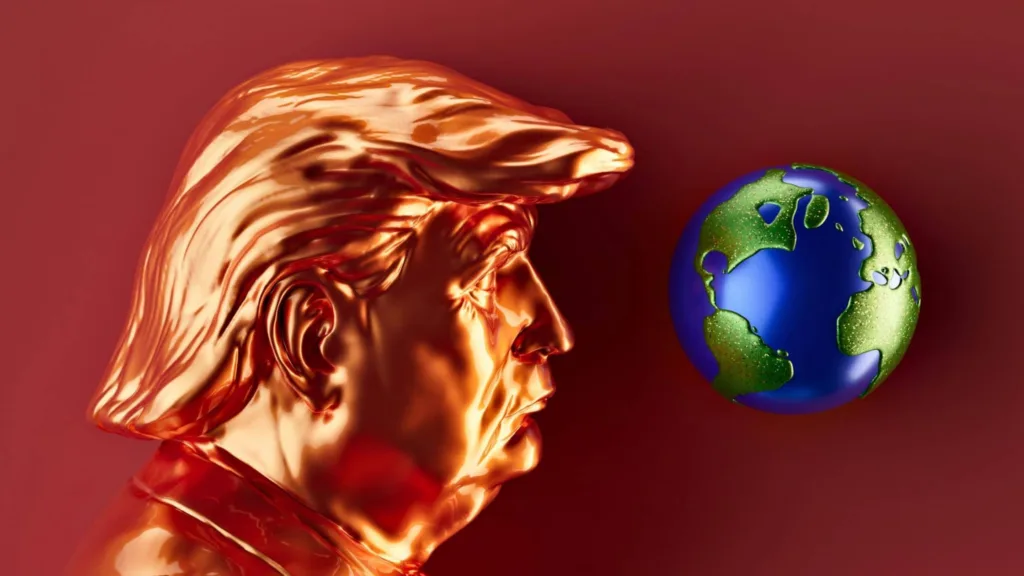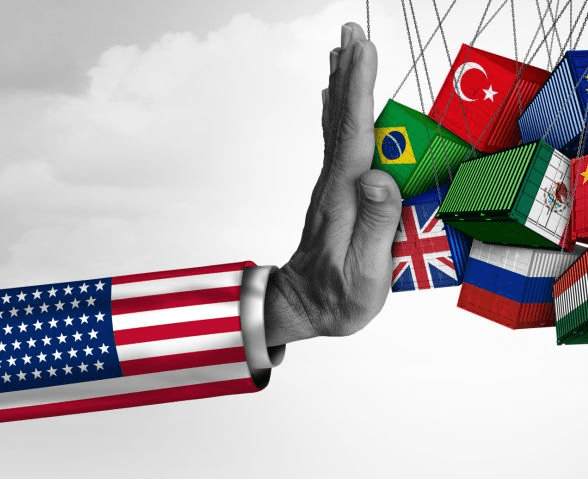Once again, the trump administration targeted the global economy. Back in 2018, Trump won the presidency, and one of his most crucial decisions was to impose tariffs on all Chinese goods (China tariffs). It was a huge setback for the global economy since it started a trade war.
It looks like history is repeating itself. 2025- and Trump is back, so are the tariffs. This, right now, is the most significant issue being discussed around the world. Even Americans are quite upset about the taxes being imposed
What are tariffs?
Tariffs are taxes imposed on imported goods. However, in the United States, these taxes target specific countries or regions. The U.S imposed recent taxes under section 301 (Trade Act of 1974). Trump administration officials declared that they would do whatever it takes to protect American interests.

One of the countries most affected is China. China now faces a US tariff averaging 34%. Since the US is one of its most important consumers of Chinese goods, these tariffs have had a significant effect. Tariffs were imposed on vehicles, steel, and aluminum products, and many other items.
Impact on China
China’s economy has been hit hard. Its export rate to their most important consumer declined drastically in recent days. The forecast is not in China’s favor either. Analysts predict a slower GDP growth and further currency depreciation in the coming years as a result of these tariffs.
China’s retaliation
China has responded to these Tariffs in several notable ways. Despite all losses, China has been taking measures by increasing tariffs on American imports too, it has also added a number of US Companies to its “unreliable entity list”. The country is also enforcing export controls and other restrictions more aggressively. The most conspicuous move by China was to expose the luxury manufacturers.
Many luxury brands were exposed by China as a retaliatory strike against the trade war started by the US
Ever since tariffs were imposed, China has been highly active on all social media platforms with one core agenda of exposing luxury brands like Chanel, Louis Vuitton, Gucci, Dior, Hermès, Prada, Lululemon, and many other high-end brands.
China openly revealed that these high-end products are being manufactured in Chinese factories, exposing the actual manufacturing cost as well. China claims that these brands sell these products in the Western market at a tenfold increase in price.
People are furious to find out that those $200,000 bags they own are nothing special but something so ordinary, with an actual cost of $45, and cherry on top, the materials that are being used in these products are the same materials they use in other local items.
Apparently the originals, second copy, and other dupes are the same.
The people are going haywire after this exposé. The resale value of these products has dropped to almost zero. This was surely a turning point for these brands
Implications for brands

Damage to the brand’s reputation
The brands are experiencing visible damage. First of all, their reputations have suffered. Although most brands clearly denied these allegations. They are trying their best to keep their customers satisfied, but they’re facing a severe backlash, too.
Sales impact
A sharp decline in resale value is evident, and consumers are not willing to buy from these brands either. There is a high possibility that people will boycott them.
Loss of trust
Consumers are now questioning whether these brands are worth their money. A huge shift in consumer attitude is seen. Specifically, Gen Z has realized that it’s not necessary to buy everything just because it’s on the trending list.
The situation was a lesson for both consumers and brands. Consumers should stop spending thousands of dollars blindly without making sure that the prices of these goods are justified. People should stop hopping on trends. Considering high-end brands only just because it makes you look rich is likely to be imprudent.
People should start buying for value for money instead of peer pressure.
The brands, on the other hand, should be considerate enough to meet the demands and rights of their users. Keeping their customers blindsided and deceiving them should be considered illegal. They should take accountability for their shortcomings as well.
Learn More About: Value Conflicts: Diversity in Perspectives
